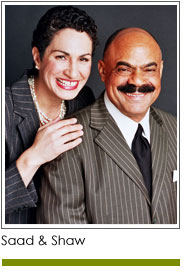 What would you do if you were responsible for reviewing financial management policies for your nonprofit? What would you do if asked to vote on a change of investment firms? What questions would you ask?
What would you do if you were responsible for reviewing financial management policies for your nonprofit? What would you do if asked to vote on a change of investment firms? What questions would you ask?
These are issues nonprofits grapple with all the time. Some of us have experience in the realm of investment selection and fund management. Most of us do not. One person who is experienced as both a nonprofit board member and an investment advisor is Leland Faust. Faust has been nationally recognized four times by Barron’s as one of the country’s top 100 independent advisors. He is also the author of the forthcoming book A Capitalist's Lament: How Wall Street Is Fleecing You and Ruining America.
We asked Faust to share the five most important things nonprofit boards and CEOs should be aware of as it relates to management of funds in general, and investment of endowment or reserve fund in particular. Here’s what he shared with us.
1. “There are, of course, many important factors in managing endowment funds. First and foremost: the manager must be a fiduciary. That is, the manager must be required by law to put the client’s interest ahead of its own. This is really the golden rule: client first, no excuses.”
2. “Don't pay layer upon layer of fees. Are you paying a consultant, and an investment advisor, and a fund of fund manager, and a private equity manager? If you are, you can easily be paying 4% annual fees plus as much as 25% of profits. If a conservative and uncomplicated investment program would yield 5%, a complicated structure subject to all these fees would have to earn over 11% to have the same performance. Over time that's essentially impossible if the investments are all equally risky.”
3. “Don’t invest in hedge funds, options, or derivatives, and don’t engage in short sales. Nonprofits should invest for the long term and not participate in gambling disguised as investing.”
4. “Investing with the previous few years’ top-performing managers usually results in poorer performance going forward. Study after study has shown that on average the recent winners are more likely to be the losers later.”
5. “If anyone claims they have proprietary information or skills that no one else does, head for the doors.”
We asked Faust what he has learned through his work as a nonprofit board member. Here are his words of wisdom. “Board members should be wary of slick presentations. Also, don’t hire those who claim to know all the answers and predict the future. Strange but true, the more certain the prediction, the more likely there will be error. A celebrity advisor guarantees nothing, and the fact that a firm is large, well-established and respected is no guarantee either.”
You can preorder A Capitalist's Lament at Amazon.com. It publishes October 11, 2016 and is written for readers who want to know how to protect themselves – and the nonprofits they work with – from “business as usual.”
Copyright 2016 – Mel and Pearl Shaw
Mel and Pearl Shaw are the authors of Prerequisites for Fundraising Success available on Amazon.com. For help growing your fundraising visit www.saadandshaw.com or call (901) 522-8727.










